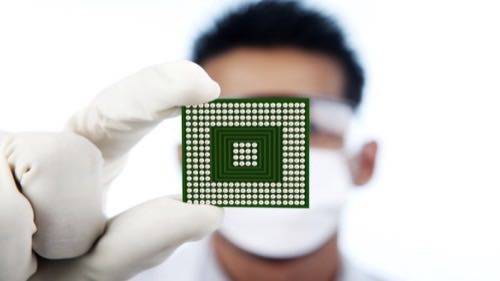
On Tuesday, Intel will formally launch Haswell, the fourth-generation Core processor the company says will help pull the PC industry out of its downward spiral.
Unfortunately for PC makers, that won’t happen. Consumers are going to continue to choosing tablets and smartphones over PCs despite Haswell’s longer battery life at cheaper prices.
Intel Singing Same Old Song
As Intel has done for years, with each new generation of processor, the company digs out the PowerPoint slides used to market the previous generation of chips, changes the codenames and touts the latest increase in battery life and performance. This time around, the mobile version of Haswell is expected to get 50 percent more battery life with no loss of performance from the previous generation.
In addition, spinmeister Intel has been touting the low prices PC buyers will find in stores during the industry’s crucial back-to-school and holiday shopping seasons. Ultrabooks will sell for as low as $499, a whopping $500 less than the rival MacBook Air from Apple, and thin-and-light notebooks will be selling in the $300 to $400 range, Intel executives told financial analysts in mid-April.
Along with low prices, stores will be stocked with new designs, such as notebooks that convert to tablets or have detachable displays that become tablets. Many of the new mobile PCs will have touch-enabled screens, courtesy of Microsoft Windows 8.
“If you look at touch-enabled, Intel-based notebooks that are ultra-thin and light using non-Core processors those prices are going to be down to as low as $200, probably,” Intel Chief Executive Paul Otellini, who stepped down last month, told analysts.
Nevertheless, a new chip, low prices and new PC designs were not enough for IDC to change its prediction that PC shipments would fall almost 8% this year, much steeper than the roughly 3% drop last year. Tablets and smartphones are responsible for the decline because they let people hold on to their PCs longer. Why buy a new PC if your more convenient mobile device can surf the Web, play video and access email?
(See also: Tablets Killing Desktops Faster Than Ever)
“The vast majority of PC sales are replacement sales, and if I keep my PC longer, then replacement sales are going to go down,” IDC analyst Bob O’Donnell says.
Chip Power Doesn’t Sell
In the 1990s, people paid attention to Intel’s latest and greatest processor, because PCs were so darn slow. Every new generation of chips from Intel held the promise of a peppier PC.
Today, people are more interested in convenience. No one cares that the ARM chip powering nearly all tablets and smartphones isn’t close to the performance level of Intel’s Core processors. As long as ARM is good enough to handle what the devices are made to do and aren’t sucking down battery power too fast, then consumers are happy.
Because Intel has yet to crack the tablet and smartphone markets, it’s stuck in a PC world of evolution, not revolution. There is nothing in PC manufacturers’ product portfolio that’s truly innovative.
Intel could get out of its rut next year, if its next-generation Atom microarchitecture, dubbed Silvermont, is successful in the tablet and smartphone markets. But even then, the chipmaker will be playing catch up.
With each generation, Intel chips deliver higher performance and better power efficiency. But that alone isn’t enough. They have to help create a mobile device that wows consumers, and that remains elusive.
Image courtesy of Shutterstock.

















